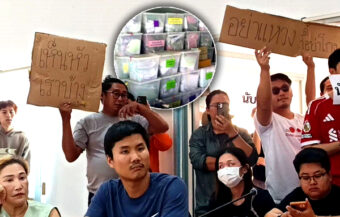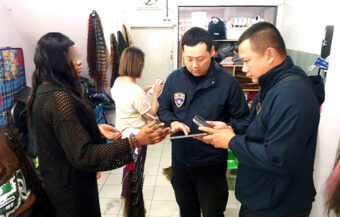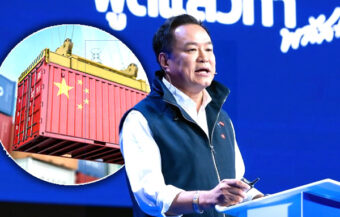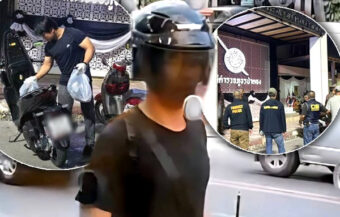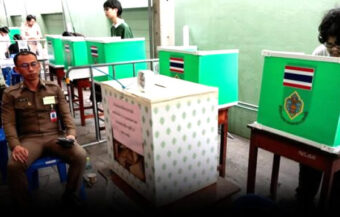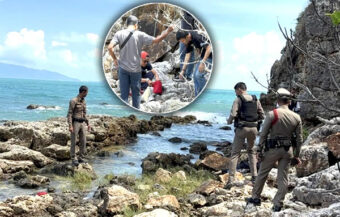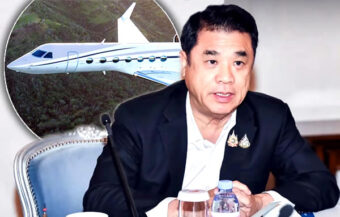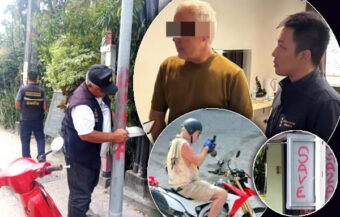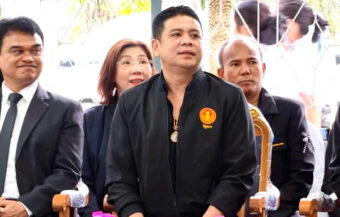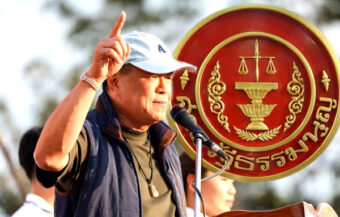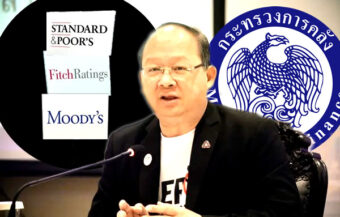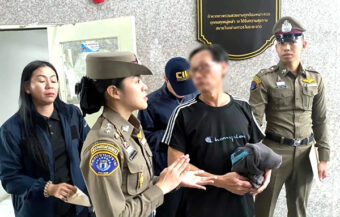Thailand escalates its hardline border crackdown after deadly clashes with Cambodia, sealing crossings, deploying troops and forestry officers, installing fences, and ordering illegal Cambodian settlers to vacate within 15 days under threat of arrest, fines and prison.
Thailand’s crackdown on Cambodia is escalating. All border crossings are sealed, and Bangkok is demanding a purge of Cambodian scam centre strongholds. On Sunday, Thai troops and forestry officers stormed Ban Nong Ya Kaeo and Ban Nong Chan in Sa Kaeo, giving settlers days to clear out of illegal homes on Thai soil. The military is rolling out security fences and locking down the border. This follows July clashes that killed over 30 Thais—and signals zero tolerance. Eviction notices warn: stay, and face arrest, heavy fines, and up to 15 years in prison.
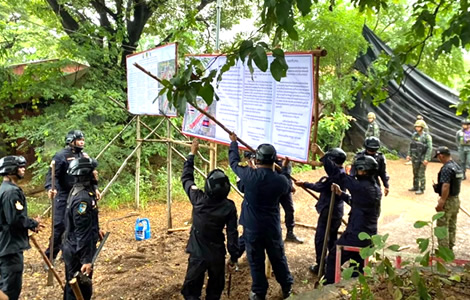
Thailand has launched a hardline crackdown on border encroachment following deadly clashes with Cambodia in late July. The violence, which occurred between July 24 and 28, left 30 dead, including 16 Thai soldiers. As a result, the Thai government has escalated efforts to reassert sovereignty and remove unauthorised Cambodian settlements along the contested border.
Even on the eve of the fighting, the Thai military assumed full control over all border zones. Crucially, all official crossings and checkpoints were shut down. Thai authorities say these closures will remain until Cambodia ends what they call its “tacit support” of anti-Thai militant groups.
These so-called scam centre compounds, many situated near the frontier, have raised deep national security concerns.
Thailand seals border and demands Cambodia end support for anti-Thai militant groups near frontier zones
At the same time, over 1 million Cambodian migrant workers have reportedly returned home. While no official order was issued, the mass return signals rising fear and uncertainty. In many cases, families left behind homes, jobs, and belongings in Thailand.
Meanwhile, the Ministry of Defence is pushing ahead with permanent border fortifications. These include new fences, surveillance systems, and rapid-response stations. Officials insist these moves are not symbolic. Rather, they reflect a long-term policy shift to defend Thai territory against both military and civilian incursions.
In this tense environment, Thai security forces say the threats are multiplying. According to reports, Russian-made PMN-2 anti-personnel mines—allegedly planted by Cambodian forces—have been discovered near hotspots. Even more concerning, local Cambodian villagers are believed to be involved in coordinated efforts to provoke Thai patrols at known flashpoints.
As a result, Thailand is now moving to clearly mark its borders—down to the last meter. Authorities say historical tolerance has created confusion.
Thailand moves to clearly demarcate the border and end decades of tolerated Cambodian settlements
In particular, many Cambodian settlements were allowed during a refugee crisis in the 1980s. However, Thai officials now say that tolerance has expired. Today, these settlements are being treated as unlawful occupations.
In response, provincial officials have taken swift action. The Governor of Sa Kaeo Province has ordered Cambodian nationals occupying Thai land to leave. These include those who have built houses, shelters, or entire communities on protected land.
To support the order, forestry officials and Village Defence Volunteers (VDVs) launched a sweeping forest reclamation operation. On Sunday, September 28, teams entered Ban Nong Ya Kaeo and Ban Nong Chan—two key villages in Khok Sung District. There, they installed six multilingual signs announcing the seizure and expulsion of encroachers.
Each sign was posted in Thai, English, and Cambodian. This, officials said, was to avoid any “misunderstanding” about the seriousness of the order. Importantly, the signs invoke Thailand’s Forest Act of 1941, Section 4(1), confirming the land as a state-protected forest.
Multilingual eviction notices issued to Cambodian settlers under the Forest Act of 1941 in Sa Kaeo
Notices in Ban Nong Ya Kaeo became effective on September 18. For Ban Nong Chan, the date was September 25. Occupants have exactly 15 days to vacate. Therefore, Nong Ya Kaeo’s deadline is October 3, while Nong Chan’s is October 10.
Failure to leave by the deadline will trigger immediate criminal prosecution. Under Sections 54 and 72/3 of the Forest Act, violators face up to 15 years in prison. In addition, fines may reach ฿100,000. If the orders are ignored, officials have stated that arrests will follow without further notice.
This operation is part of a broader campaign known as “Reclaiming the Forests of Thailand.” Officials say the campaign is both environmental and nationalistic. It aims to restore forest lands while also reinforcing Thai territorial integrity.
Importantly, reports say over 40 Cambodian houses have been built in Ban Nong Ya Kaeo alone. Many are semi-permanent structures, with water tanks, livestock enclosures, and electrical hookups. Some even show signs of recent expansion.
Over 40 Cambodian houses found in forest areas as authorities launch a Reclaim the Forests campaign
Aerial photos taken by Thai authorities show these settlements growing deeper into forested areas. Officials say this is not accidental. On the contrary, they believe the encroachment is being coordinated, possibly with unofficial backing from Cambodian actors.
As the deadline approaches, tension is rising in the Khok Sung-Sa Kaeo border area. Authorities are conducting daily surveillance. Drones, foot patrols, and satellite mapping are all being used to track activity. Meanwhile, police have filed formal reports with the Khok Sung Police Station for both villages. These reports support legal action and authorise future enforcement.
According to the Thai side, this is not simply a land dispute. Rather, it is a matter of national security and sovereignty. Officials insist that every inch of Thai territory must be protected—regardless of the political cost.
This crackdown, therefore, marks a significant turning point. For decades, grey areas along the border were left unresolved. But now, Thai authorities are clearly drawing the line. They say the days of informal tolerance and soft enforcement are over.
Thai officials prepare mass evictions as border crackdown escalates with full military and legal support
If the eviction orders are not followed, mass removals and arrests are expected. In preparation, additional VDV personnel and military units have been placed on standby.
The Thai government has made its position clear: these are not humanitarian settlements. Instead, they are considered illegal encroachments on protected state land. As one official stated, “We are not negotiating. We are enforcing the law.”
Sisaket locals fled border homes on Tuesday after shooting heard between Thai and Cambodian forces
Army to install electronic fence and shut border crossings indefinitely after the latest clashes in Sa Kaeo province
While international observers have yet to comment, the message from Bangkok is unmistakable. The border will be secured. The forests will be reclaimed. And those who ignore Thai law will face the full force of it.
As October approaches, all eyes are now on Sa Kaeo. What happens next may well define the future of Thai-Cambodian relations—and the fate of hundreds now living on disputed ground.
Join the Thai News forum, follow Thai Examiner on Facebook here
Receive all our stories as they come out on Telegram here
Follow Thai Examiner here
Further reading:
Political trust between the parties at an all-time low following a deepening and confusing crisis
New cabinet to be sworn in at Dusit Palace in Bangkok on Wednesday September 24th before the King
Anutin planning eight-month economic programme as his PM tenure will extend to the next government
Incoming minister Chaichanok Chidchob’s strong line on Cambodian border following crossings closure
2nd Army chief warns Acting PM Cambodian regime cannot be trusted and that border must stay closed


